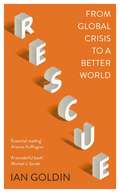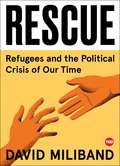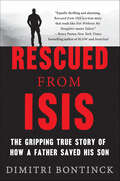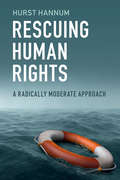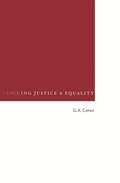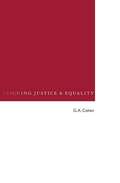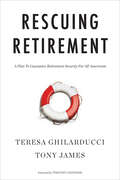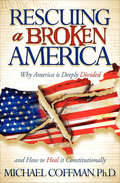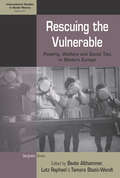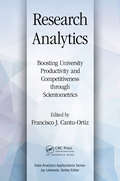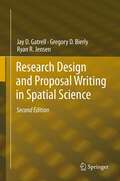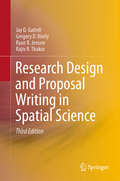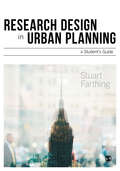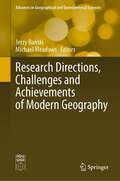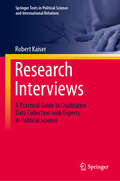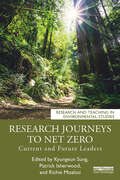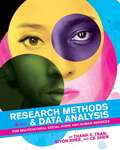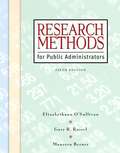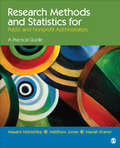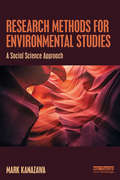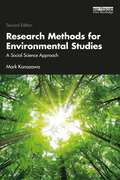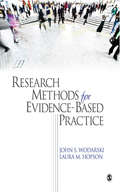- Table View
- List View
Rescue: From Global Crisis to a Better World
by Ian GoldinAn optimistic vision of the future after Covid-19 by a leading professor of globalisation at the University of Oxford.We are at a crossroads. The wrecking-ball of Covid-19 has destroyed global norms. Many think that after the devastation there will be a bounce back. To Ian Goldin, Professor of Development and Globalisation at the University of Oxford, this is a retrograde notion. He believes that this crisis can create opportunities for change, just as the Second World War forged the ideas behind the Beveridge Report. Published in 1942, it was revolutionary and laid the foundations for the welfare state alongside a host of other social and economic reforms, changing the world for the better. Ian Goldin tackles the challenges and opportunities posed by the pandemic, ranging from globalisation to the future of jobs, income inequality and geopolitics, the climate crisis and the modern city. It is a fresh, bold call for an optimistic future and one we all have the power to create.
Rescue: From Global Crisis to a Better World
by Ian GoldinAn optimistic vision of the future after Covid-19 by a leading professor of globalisation at the University of Oxford.We are at a crossroads. The wrecking-ball of Covid-19 has destroyed global norms. Many think that after the devastation there will be a bounce back. To Ian Goldin, Professor of Development and Globalisation at the University of Oxford, this is a retrograde notion. He believes that this crisis can create opportunities for change, just as the Second World War forged the ideas behind the Beveridge Report. Published in 1942, it was revolutionary and laid the foundations for the welfare state alongside a host of other social and economic reforms, changing the world for the better. Ian Goldin tackles the challenges and opportunities posed by the pandemic, ranging from globalisation to the future of jobs, income inequality and geopolitics, the climate crisis and the modern city. It is a fresh, bold call for an optimistic future and one we all have the power to create.(P) 2021 Hodder & Stoughton Ltd
Rescue: Refugees and the Political Crisis of Our Time (TED Books)
by David MilibandWe are in the midst of a global refugee crisis. Sixty five million people are fleeing for their lives. The choices are urgent, not just for them but for all of us. What can we possibly do to help?With compassion and clarity, David Miliband shows why we should care and how we can make a difference. He takes us from war zones in the Middle East to peaceful suburbs in America to explain the crisis and show what can be done, not just by governments with the power to change policy but by citizens with the urge to change lives. His innovative and practical call to action shows that the crisis need not overwhelm us. Miliband says this is a fight to uphold the best of human nature in the face of rhetoric and policy that humor the worst. He defends the international order built by western leaders out of the ashes of World War II, but says now is the time for reform. Describing his family story and drawing revealing lessons from his life in politics, David Miliband shows that if we fail refugees, then we betray our own history, values, and interests. The message is simple: rescue refugees and we rescue ourselves.
Rescued from ISIS: The Gripping True Story of How a Father Saved His Son
by Dimitri BontinckRescued from ISIS is the inspiring and terrifying tale of one man's journey to the Middle East to save his child from radical Islam, and its surprising worldwide repercussions.Dimitri Bontinck lived every parent's worst nightmare. His teenage son, introduced to Islam by his girlfriend, fell into the clutches of a radical mosque. Dimitri watched helplessly as his son, Jay, transformed from a gentle boy to a soldier in training, wearing traditional robes and following a strict diet. Completely brainwashed, Jay snuck out of the house and traveled to Syria, all but vanishing. Too late, Dimitri learned that their country, Belgium, was the leading hotbed of Islamic radicalization. Large numbers of teenagers were being lured into this world and expertly indoctrinated into radical Islam. One by one, they disappeared into the Middle East, most never to be seen again.With no one to help him, Dimitri--a white, Christian-raised atheist--set off on his own to save his son. Using only his military training, a lot of courage, and a little luck, he gradually embedded himself deeper and deeper into the Middle East. After months of searching and several close calls—including being thrown in a jail cell and beaten—he was able to find his son and bring him home. The world was shocked at his unprecedented success, and he started receiving pleas from families around the world, asking that he rescue their children, as well. Increasingly fearful for his own life but unable to ignore these cries for help, Dimitri accepted his newfound role as The Jihadi Hunter.
Rescuing Human Rights: A Radically Moderate Approach
by Hurst HannumThe development of human rights norms is one of the most significant achievements in international relations and law since 1945, but the continuing influence of human rights is increasingly being questioned by authoritarian governments, nationalists, and pundits. Unfortunately, the proliferation of new rights, linking rights to other issues such as international crimes or the activities of business, and attempting to address every social problem from a human rights perspective risk undermining their credibility. Rescuing Human Rights calls for understanding 'human rights' as international human rights law and maintaining the distinctions between binding legal obligations on governments and broader issues of ethics, politics, and social change. Resolving complex social problems requires more than simplistic appeals to rights, and adopting a 'radically moderate' approach that recognizes both the potential and the limits of international human rights law, offers the best hope of preserving the principle that we all have rights, simply because we are human.
Rescuing Justice and Equality
by G. A. CohenArguing against the Rawlsian version of a just society, Cohen demonstrates that distributive justice does not tolerate deep inequality. In the course of providing a deep and sophisticated critique of Rawlsian's theory of justice, Cohen demonstrates that questions of distributive justice arise not only for the state but also for people in their daily lives. The right rules for the macro scale of public institutions and policies also apply, with suitable adjustments, to the micro level of individual decision-making.
Rescuing Justice and Equality
by G. A. CohenIn this stimulating work of political philosophy, acclaimed philosopher G. A. Cohen sets out to rescue the egalitarian thesis that in a society in which distributive justice prevails, people’s material prospects are roughly equal. Arguing against the Rawlsian version of a just society, Cohen demonstrates that distributive justice does not tolerate deep inequality. In the course of providing a deep and sophisticated critique of Rawls’s theory of justice, Cohen demonstrates that questions of distributive justice arise not only for the state but also for people in their daily lives. The right rules for the macro scale of public institutions and policies also apply, with suitable adjustments, to the micro level of individual decision-making. Cohen also charges Rawls’s constructivism with systematically conflating the concept of justice with other concepts. Within the Rawlsian architectonic, justice is not distinguished either from other values or from optimal rules of social regulation. The elimination of those conflations brings justice closer to equality.
Rescuing Retirement: A Plan to Guarantee Retirement Security for All Americans
by Teresa Ghilarducci Tony JamesRetirement shouldn&’t be just for the rich: &“Finally, a practical plan to address Americans&’ lack of adequate retirement savings.&”—Michael Bloomberg Everyone deserves to be able to retire with dignity, but this core feature of the social contract is in jeopardy. Companies have swerved away from pensions, and most of the workforce has woefully inadequate retirement savings. If we don&’t act to fix this broken system, rates of impoverishment for senior citizens threaten to skyrocket, and tens of millions of Americans reaching retirement age in the coming decades will be forced to delay retirement and will experience a dramatic drop in their standard of living. In Rescuing Retirement, economist Teresa Ghilarducci and billionaire businessman Tony James offer a comprehensive yet simple plan to help workers save for retirement, increase retirement savings by earning higher returns, and guarantee lifelong income for everyone. Built on people&’s own money in individual Guaranteed Retirement Accounts, the plan requires no new taxes, no more bureaucracy, and no increase in the deficit. Speaking to Americans&’ growing anxiety about their ability to retire, Rescuing Retirement provides answers to anyone wanting to understand the growing movement to protect a period of life once considered a deserved time of rest and creativity and offers a practical guide to the future of secure retirement. &“Ghilarducci and James never slip into wonk-speak or jargon, and lay readers will appreciate the way the authors make sense of complex economic issues.&”—Publishers Weekly
Rescuing Rosie
by Lara BergenCarter Mason's life is turned upside down when her father, Major Mason of the Princess Protection Program--a fictitious organization that rescues princesses--brings Princess Rosalinda to their Louisiana home.
Rescuing a Broken America: Why America is Deeply Divided and How to Heal it Constitutionally
by Michael CoffmanA plan for restoring and protecting freedom, based on the United States Constitution. There has been a deliberate effort over the past one hundred years to change the worldview of Americans from a liberty and constitutionally focused world view, based on the writings of Englishman John Locke, to that of government control of the individual based on the writings of Frenchman Jean Jacques Rousseau. Rousseau&’s model of state control now dominates government policy and America&’s world view, and the free market, civil liberties and protections guaranteed by the United States Constitution are being destroyed. The Rousseau world view dominates our education, judicial, media, and legislative institutions with what is called progressivism. This leads to socialism, fascism, and even communism. It is what has inflamed the backlash known as the tea party movement. There is hope, however. Although seriously weakened, the Constitution still stands, and its protections are still in most laws at the federal and state level that offers protections for local communities that are generally unknown to most people—even attorneys. The book explains why Americans are so divided, how the destruction of liberty occurred, who is behind it, and how Americans can stop this destruction of our way of life by electing constitutionally based candidates to office and protect their communities from egregious federal and state laws and regulations.
Rescuing the Planet: Protecting Half the Land to Heal the Earth
by Tony Hiss"As clear a picture of humanity's impact on earth's natural environment as any ever written." --E. O. Wilson (from the Introduction)An urgent, resounding call to protect 50 percent of the earth's land by 2050--thereby saving millions of its species--and a candid assessment of the health of our planet and our role in conserving it, from the award-winning author of The Experience of Place and veteran New Yorker staff writer.Beginning in the vast North American Boreal Forest that stretches through Canada, and roving across the continent, from the Northern Sierra to Alabama's Paint Rock Forest, from the Appalachian Trail to a ranch in Mexico, Tony Hiss sets out on a journey to take stock of the "superorganism" that is the earth: its land, its elements, its plants and animals, its greatest threats--and what we can do to keep it, and ourselves, alive.Hiss not only invites us to understand the scope and gravity of the problems we face, but also makes the case for why protecting half the land is the way to fix those problems. He highlights the important work of the many groups already involved in this fight, such as the Indigenous Leadership Initiative, the Yellowstone to Yukon Conservation Initiative, and the global animal tracking project ICARUS. And he introduces us to the engineers, geologists, biologists, botanists, oceanographers, ecologists, and other "Half Earthers" like Hiss himself who are allied in their dedication to the unifying, essential cause of saving our own planet from ourselves.Tender, impassioned, curious, and above all else inspiring, Rescuing the Planet is a work that promises to make all of us better citizens of the earth.
Rescuing the Vulnerable: Poverty, Welfare and Social Ties in Modern Europe
by Lutz Raphael Beate Althammer Tamara Stazic-WendtIn many ways, the European welfare state constituted a response to the new forms of social fracture and economic turbulence that were born out of industrialization-challenges that were particularly acute for groups whose integration into society seemed the most tenuous. Covering a range of national cases, this volume explores the relationship of weak social ties to poverty and how ideas about this relationship informed welfare policies in the nineteenth and twentieth centuries. By focusing on three representative populations-neglected children, the homeless, and the unemployed-it provides a rich, comparative consideration of the shifting perceptions, representations, and lived experiences of social vulnerability in modern Europe.
Research Analytics: Boosting University Productivity and Competitiveness through Scientometrics (Data Analytics Applications)
by Francisco J. Cantu-OrtizThe growth of machines and users of the Internet has led to the proliferation of all sorts of data concerning individuals, institutions, companies, governments, universities, and all kinds of known objects and events happening everywhere in daily life. Scientific knowledge is not an exception to the data boom. The phenomenon of data growth in science pushes forth as the number of scientific papers published doubles every 9–15 years, and the need for methods and tools to understand what is reported in scientific literature becomes evident. <P><P>As the number of academicians and innovators swells, so do the number of publications of all types, yielding outlets of documents and depots of authors and institutions that need to be found in Bibliometric databases. These databases are dug into and treated to hand over metrics of research performance by means of Scientometrics that analyze the toil of individuals, institutions, journals, countries, and even regions of the world. The objective of this book is to assist students, professors, university managers, government, industry, and stakeholders in general, understand which are the main Bibliometric databases, what are the key research indicators, and who are the main players in university rankings and the methodologies and approaches that they employ in producing ranking tables. <P><P>The book is divided into two sections. The first looks at Scientometric databases, including Scopus and Google Scholar as well as institutional repositories. The second section examines the application of Scientometrics to world-class universities and the role that Scientometrics can play in competition among them. It looks at university rankings and the methodologies used to create these rankings. Individual chapters examine specific rankings that include: <P><P> <P><P>QS World University <P><P>Scimago Institutions <P><P>Webometrics <P><P>U-Multirank <P><P>U.S. News & World Report <P><P>The book concludes with a discussion of university performance in the age of research analytics.
Research Design and Proposal Writing in Spatial Science: Second Edition
by Gregory D. Bierly Ryan R. Jensen Jay D. GatrellThe complex interactions between human and physical systems confronting social scientists and policymakers pose unique conceptual, methodological, and practical complications when 'doing research'. Graduate students in a broad range of related fields need to learn how to tackle the discipline-specific issues of space, place, and scale as they propose and perform research in the spatial sciences. This practical textbook and overview blends plenty of concrete examples of spatial research and case studies to familiarize readers with the research process as it demystifies and exemplifies how to really do it. The appendix contains both completed and in-progress proposals for MA and PhD theses and dissertations. Emphasizing research as a learning and experiential process while providing students with the encouragement and skills needed for success in proposal writing, "Research Design and Proposal Writing in Spatial Science" can serve as a textbook for graduate-level research-design courses, as well as for undergraduate-level project-based spatial science courses. Keywords: proposal writing, grant writing, research, geography, spatial science
Research Design and Proposal Writing in Spatial Science: Second Edition
by Gregory D. Bierly Ryan R. Jensen Jay D. Gatrell Rajiv R. ThakurThe investigation of the interactions between human and physical systems poses unique conceptual, methodological, and practical challenges. This book establishes a spatial science framework for policymakers, social scientists, and environmental researchers as they explore and analyze complex problems. The authors provide guidance for scientists, writers, and students across a broad range of fields on how to tackle discipline-specific issues of space, place, and scale as they propose and conduct research in the spatial sciences. This practical textbook and overview blends plenty of concrete examples of spatial research and case studies to familiarize readers with the research process, demystifying and illustrating how it is actually done. The appendix contains both completed and in-progress proposals for MA and PhD theses and dissertations, as well as successful research grants. By emphasizing research as a learning and experiential process, while providing students with the encouragement and skills needed for success in proposal writing, "Research Design and Proposal Writing in Spatial Science" can serve as a textbook for research-design or project-based courses at the upper-division undergraduate and graduate level.
Research Design in Urban Planning: A Student′s Guide
by Stuart Farthing"This excellent book fills a significant gap in the literature supporting planning education by providing clear, succinct advice on the design and implementation of small-scale student research projects." - Chris Couch, Professor of Geography and Planning, University of Liverpool "A perfect text for supervisors to give students so that they plan their research projects carefully rather than leap headlong into data collection." - Jean Hillier, Emeritus Professor of Sustainability and Urban Planning, RMIT University, Melbourne "Highly recommended... Ranging across topics such as planning a research programme and data management and the handling of ethical issues, the book will be very helpful to those embarking on a thesis or dissertation in the field." - Peter Fidler, President of the University of Sunderland Research Design in Urban Planning: A Student’s Guide is a brilliantly accessible guide to designing research for that all-important dissertation. Aimed at both undergraduate and postgraduate levels, this text will: · discuss research design, outlining the stages of the research process in clear detail and the key decisions which need to be taken at each stage · explain to students how to re-interpret policy issues as researchable questions, appropriate for investigation · look in detail at how researchers make their choice of methods, helping students to justify their own decisions · reveal the ethical dimension to such decisions in the context of a growing requirement for the ethical approval of student projects · review the issues for comparative studies – important not least because of student involvement in Erasmus programs and AESOP workshops Packed with case studies, exercises, illustrations and summaries, Research Design in Urban Planning is an invaluable resource for students undertaking their first substantial, individual investigations.
Research Directions, Challenges and Achievements of Modern Geography (Advances in Geographical and Environmental Sciences)
by Michael Meadows Jerzy BańskiThis book identifies and discusses research directions, challenges and achievements in contemporary geography. It also documents the most current theoretical and methodological considerations undertaken by scientists representing various sub-disciplines of geography with particular reference to human geography. It was assumed that the thematic structure of the currently active International Geographical Union (IGU) problem commissions corresponds to the most relevant and current research directions in geography. Reflecting this assumption, the book consists of 14 chapters contributed by geographers representing 14 problem commissions of the IGU, which allows us to examine geography from different perspectives and to provide the reader with a complete overview of contemporary research issues in human geography. The first part discusses contemporary research problems and issues related to scientific methodology and achievements of selected geographical sub-disciplines, including urban geography, agricultural geography, transport geography, and political geography, among others. The second part focuses on the interdisciplinarity of geography and the topics of global dimension undertaken by geographers such as global change, GIS and geospatial technology, marginalization, and environmental change. This part also discusses the internal relations between geographical specializations and their links with other related sciences, including geology, sociology, and economics. The third part discusses the holistic approaches of geography applied to particular regions, territories, or conditions (Africa, costal systems, geomorphology and local development).
Research Interviews: A Practical Guide to Qualitative Data Collection with Experts in Political Science (Springer Texts in Political Science and International Relations)
by Robert KaiserThe textbook is primarily aimed at students and younger researchers and offers a concise but systematic practical guide to planning and conducting qualitative expert interviews in political science. It provides a methodologically sound and application- or problem-oriented approach to this form of independent qualitative data collection. The English translation of this book, originally in German, was facilitated by artificial intelligence. The content was later revised by the author for accuracy and adapted to an international readership.
Research Journeys to Net Zero: Current and Future Leaders (Research and Teaching in Environmental Studies)
by Richie Moalosi Kyungeun Sung Patrick IsherwoodThis book provides useful insight into how academics from diverse disciplinary backgrounds, such as science, engineering, technology, social science, policy, design, architecture, built environment, business, and management, have been conducting research into how to realise net zero emissions to address climate change. This book explores the ways in which countries around the world have pledged to achieve net zero emissions through decarbonisation processes. It presents the highest calibre research and impact activities carried out in the UK, Europe, North America, Australia, Asia, and Africa. Such activities include conceptualisation, opportunity identification, specific case studies, demonstration of proof of concepts, provision of evidence, education of the general public, and knowledge transfer to companies. Further to this, the chapters also bring to light personal career journeys to net zero by current and future international research leaders. From this book, readers will gain a full understanding of net zero research via multiple disciplinary pathways, be inspired by personal accounts, and will learn key methodologies, including quantitative and qualitative approaches. The diversity of authors and topics make the book widely applicable to a range of fields, and it will be of great interest to researchers, students, practitioners, and decision makers working towards the goals of net zero and decarbonisation.
Research Methods & Data Analysis for Multicultural Social Work and Human Services
by Thanh V Tran Siyon Y Rhee Ce ShenResearch Methods & Data Analysis for Multicultural Social Work and Human Services introduces research methodology to social work students and practitioners. It provides hands-on examples of how to conduct data analysis in SPSS and Stata. It equips readers with the skills needed to become critical research consumers and to engage in agency-based research and evaluation. The text teaches students how to collect appropriate data and analyze data that is suitable for each type of research design. It prepares them to conduct applied social science research in a variety of fields, such as health and mental health, ethnic studies, acculturation, family violence, LGBT studies, and more. Topics addressed include the process of research, ethical issues, the validity and reliability of research instruments, design types, and relevant statistical tools. Research Methods & Data Analysis for Multicultural Social Work and Human Services provides a solid foundation and knowledge base for students and researchers. It is an excellent resource for undergraduate and graduate level research methods and design classes and courses on research and statistics in social work.
Research Methods For Public Administrators, 5th Edition
by Maureen Berner Gary R. Rassel Elizabethann O'SullivanThis practical, lucid text introduces students to the methodological tools public administrators and policy analysts use to conduct research in today's world. This accessible text offers an abundance of engaging examples and provides step-by-step instructions to illustrate common research methods and techniques, providing students and future administrators with a sound foundation in model building, research design, measurement, and sampling. The book's statistical section focuses on correct use and interpretation of commonly used statistics, including linear regression. The book's overall aim is to develop effective, efficient research skills among future public administrators so that they will be better policy makers. It accomplishes this not only by providing a comprehensive survey of research techniques, but also by developing students' awareness of the ethical issues associated with conducting research and reporting findings. Features: Terms for review at the end of each chapter are clearly defined in an accessible and comprehensive glossary at the back of the book. "Problems for Homework and Discussion" appear in each chapter, assessing students' comprehension of concepts and techniques discussed in the chapter. Exercises allow students to become familiar with statistical software, which holds data in ASCII, spreadsheets, and SPSS formats. Internet surveys are interspersed throughout the text, reflecting the growing influence of this medium on research methods and data sources.
Research Methods and Statistics for Public and Nonprofit Administrators: A Practical Guide
by Masami Nishishiba Mariah A. Kraner Matthew A. Jones"The approach is well executed. The problems encountered by [the characters] represent real-life issues than administrators are faced with and the applications needed to address them." —Lee W. Payne, Stephen F. Austin State University Research Methods and Statistics for Public and Nonprofit Administrators: A Practical Guide is a comprehensive, easy-to-read, core text that thoroughly prepares readers to apply research methods and data analysis to the professional environments of public and non-profit administration. The authors expertly incorporate original case examples to demonstrate concepts using "real actors," facing specific scenarios, in which research methods must be applied. This unique approach—presented in language accessible to both students new to research as well as current practitioners—guides the reader in fully understanding the research options detailed throughout the text.
Research Methods for Environmental Studies: A Social Science Approach
by Mark KanazawaThe methodological needs of environmental studies are unique in the breadth of research questions that can be posed, calling for a textbook that covers a broad swath of approaches to conducting research with potentially many different kinds of evidence. Written specifically for social science-based research into the environment, this book covers the best-practice research methods most commonly used to study the environment and its connections to societal and economic activities and objectives. Over five key parts, Kanazawa introduces quantitative and qualitative approaches, mixed methods, and the special requirements of interdisciplinary research, emphasizing that methodological practice should be tailored to the specific needs of the project. Within these parts, detailed coverage is provided on key topics including the identification of a research project; spatial analysis; ethnography approaches; interview technique; and ethical issues in environmental research. Drawing on a variety of extended examples to encourage problem-based learning and fully addressing the challenges associated with interdisciplinary investigation, this book will be an essential resource for students embarking on courses exploring research methods in environmental studies.
Research Methods for Environmental Studies: A Social Science Approach
by Mark KanazawaThe methodological needs of environmental studies are unique in the breadth of research questions that can be posed, calling for a textbook that covers a broad swath of approaches to conducting research with potentially many different kinds of evidence. Fully updated to address new developments such as the effects of the internet, recent trends in the use of computers, remote sensing, and large data sets, this new edition of Research Methods for Environmental Studies is written specifically for social science-based research into the environment. This revised edition contains new chapters on coding, focus groups, and an extended treatment of hypothesis testing. The textbook covers the best-practice research methods most used to study the environment and its connections to societal and economic activities and objectives. Over five key parts, Kanazawa introduces quantitative and qualitative approaches, mixed methods, and the special requirements of interdisciplinary research, emphasizing that methodological practice should be tailored to the specific needs of the project. Within these parts, detailed coverage is provided on key topics including the identification of a research project, hypothesis testing, spatial analysis, the case study method, ethnographic approaches, discourse analysis, mixed methods, survey and interview techniques, focus groups, and ethical issues in environmental research. Drawing on a variety of extended and updated examples to encourage problem-based learning and fully addressing the challenges associated with interdisciplinary investigation, this book will be an essential resource for students embarking on courses exploring research methods in environmental studies.
Research Methods for Evidence-Based Practice
by John S. Wodarski Laura HopsonThis practical and student-friendly text teaches social work students the concepts and skills needed to apply research methods in their practice with clients. It offers students an enhanced understanding of the research process, and equips them with the necessary tools and skills to evaluate studies, translate relevant behavioral science knowledge into practice principles, and implement evaluation procedures in their daily practice. Renowned authors Wodarski and Hopson use social work research methods to examine emerging issues in the field as they pertain to evidence-based practice, such as curriculum development and funding. This approach yields a unique analysis that differs from others on the market because it fully integrates evidence-based practice methodology into the heart of the text, rather than in a single chapter.
